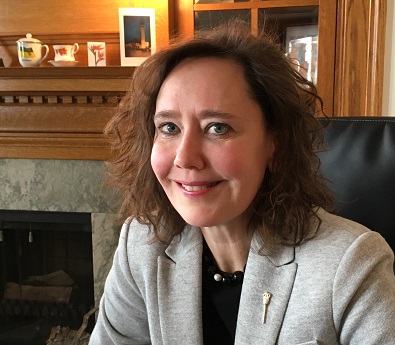Education Minister, Bronwyn Eyre. Photo courtesy Manfred Joehnck.
The Federation of Sovereign Indigenous Nations is emphasizing the importance of treaty education after Saskatchewan Education Minister Bronwyn Eyre criticized material studied by the province’s students in a speech last Wednesday.
“The intention is always good to provide resources to teachers, websites, professional development, access to material on this issue or that issue. But what has ended up happening, to my mind, is that the broader curriculum has become watered down,” said Eyre. “Teachers, it seems, are being put upon to infuse certain material into every subject area, and students are becoming guinea pigs in some cases for whatever is being tried out by the system.”
In the same speech, Eyre also used her son as an example when articulating how the education system portrays the European settlers.
“My Grade 8 son brought a homework sheet home the other day — they’re always sheets — in which he was asked to outline nothing less than his vision of his collective past, his country, and his world. As background, however, he’d copied from the board the following facts which were presented as fact: that European and European settlers were colonialists, pillagers of the land who knew only buying and selling and didn’t respect Mother Earth,” said the minister. “He asked me if it was okay if he could write that he associated with his pioneer great- and great-great-grandparents because no one was writing down their vision of the world. And I said yes, of course.”
Some have taken her statements as a call to remove or reduce the amount of content related to the treaties in the classroom, a move which FSIN Chief Bobby Cameron is strongly against.
“We are the original people, the First Peoples of these lands, our history and treaties are crucial,” says FSIN Chief Bobby Cameron. “This is the reason why it’s vital to teach about the treaties in the classroom and to all levels of government, who need to be taught the same thing.”
Eyre met with reporters Wednesday to clarify her remarks.
“All I was saying there, is that it was unfortunate that that was taught as objective fact, and that’s it,” said Eyre. “Whichever way it’s taught, perhaps it’s not particularly helpful in terms of just wanting to make sure that we continue to build bridges.”
